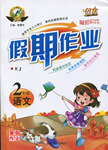题目内容
The “challenges” of family holidays are well-known. It's 1 enough getting on with your husband,wife or kids at home,so how can you 2 yourself while travelling with them? Susan M. Shaw,expert on leisure(休闲) at the University of Waterloo,thinks the term “family leisure” is full of 3 . “Research suggests that such 4 do not always make you feel relaxed,” she writes,darkly.
Family holidays probably,don't add much to the sum of human 5 . However,as one of my friends likes to 6 , people don't have children for happiness. Research has shown that 7 are less happy than childless people. 8 , says my friend,having children is best understood as a biological urge. You have them not for the present but for the 9 ,so that your 客從從(基因) will continue to exist when you are gone. And 10 , you go on family holidays not for the present but for the future.
Thus,the aim of the holiday,much of the time,is to stock up on 11 : to leave all family members with 12 of happiness that they can look back on after the family doesn't exist. Indeed,much of what we remember of our families comes from 13 . On holiday,the family exists more clearly than at any other time: all together for once,14 work,school or friends. On holiday,you are much closer to your 15 . Holiday photographs make that feeling of closeness 16 . In fact,the photographs themselves are perhaps the main 17 of the holiday: that's where the memories get laid down.
A family holiday is for memories. Once you grasp that,you will not 18 it. I vividly remember,about 30 years ago,returning from an Italian 19 to our handsome brick house. 20 we opened the front gate,my mother said,uThat's the best part of a holiday: coming home." At the time I didn't know what she meant.
1. A. happy B. hard C. fortunate D. strange
2. A. enjoy B. teach C. blame D. hurt
3. A. fun B. luck C. questions D. problems
4. A. relationships B. terms C. definitions D. activities
5. A. population B. wealth C. happiness D. kindness
6. A. argue B. complain C. guess D. predict
7. A. teachers B. parents C. husbands D. wives
8. A. Still B. Thus C. Rather D. Indeed
9. A. dream B. joy C. future D. health
10. A. difficultly B. similarly C. sadly D. quickly
11. A. merftories B. imaginations C. information D. impression
12. A. details B. photographs C. description D. evaluation
13. A. customs B. language C. holidays D. behaviour
14. A. except B. against C. despite D. without
15. A. family B. friends C. home D. cameras
16. A. possible B. positive C. better D. stronger
17. A. function B. reason C. aim D. advantage
18. A. learn from B. suffer from C. seek for D. care for
19. A. vacation B. meeting C. performance D. training
20. A. Because B. Before C.If D.As
话题:家庭、朋友与周围的人本文是议论文。很多人认为跟家人一起度假是种折磨,作者却认为全家人
一起度假很有意义,能留下很多美好的回忆。
1. B.
2. A.根据本段开头的The “challenges” of family holidays 可推 测,这里指平时在家里跟家人相处己 经很“难(hard) ” 了,那么跟他们一起 度假又怎么能“过得愉快(enjoy) ”呢?
3. D.既然跟家人度假是琐挑战,那么 “家庭休闲”这种说法本身就有“问题 (problems) ”。
4. D.这里是指度假这些“活动 (activities ) ”不能总是让人感到放松。
5. C.根据下句中的 people don't have children for happiness 可知,作者用“人 们养育孩子不是为了幸福”来反驳全 家度假可能不会增加人们的“幸福 (happiness ) ”总值的观点。
6. A.舍据本句开头的However可知,本 句与上一句是转折对比关系,故ai^ue (反驳) 符合此处语境。
7. B.根据上句中的have children与本 句中的childless people可知,这里是 将有孩子的人,即:“父母(parents) ”与 没有孩子的人作比较。
8. C.根据上文中的 people don't have children for happiness 及本空后的 having children ... so that your genes will continue to exist when you are gone可知,作者的朋友认为人们养育 孩子不是为了幸福,“而是(Rather) ”为了让自己的基因延续。
9. C.本段末的 not for the present but for the fbture提示了本题答案。
10. B.根据上文中的 You have them not for the present ...及本空后的内容可 知,度假跟养育孩子“相似 (similarly) ”,都不是为了.现在,而是 为了将来。
11. A.根据本段中的remember of及 memories可知,很多时候,度假的目 的就是为了存储“回忆(memories) ”。
12. B.本段#后两句出现的photo-graphs提示了本题答案。
13. C.根据本空后两句开头的On holiday可知,我们对家庭的很多回 忆来自“holidays (假期) ”。
14. D.
15. A.根据常识我们知道,跟家 人度假的时候我们身边“没有(without) ”工作、学校或朋友,因此我 们跟“家人(family) ”更加亲近。
16. D.度假时拍的照片会让家人之间 的亲密感“更加强烈(stronger ) ”。
17. C.根据本句冒号后的内容可知,作 者认为度假时拍的照片也许就是度 假的主要“目的(aim) ”:留住回忆。
18. B.作者认为全家人一起度假很有意 义,能留下很多美好的回忆,所以你 一旦认识到这一点,你就不会因为跟 家人度假而“感到痛苦(suffer from) ”。
19. A.根据下一句中的 That's the best part of a holiday可知,这里是指作者 跟家人从意大利度“假(vacation) ”归 来.
20. D.“我们打开门”和“妈妈说:‘度假 最好的地方就在于回家’ ”是几乎同 时发生的,故As符合此处语境。

 鸿图图书寒假作业假期作业吉林大学出版社系列答案
鸿图图书寒假作业假期作业吉林大学出版社系列答案